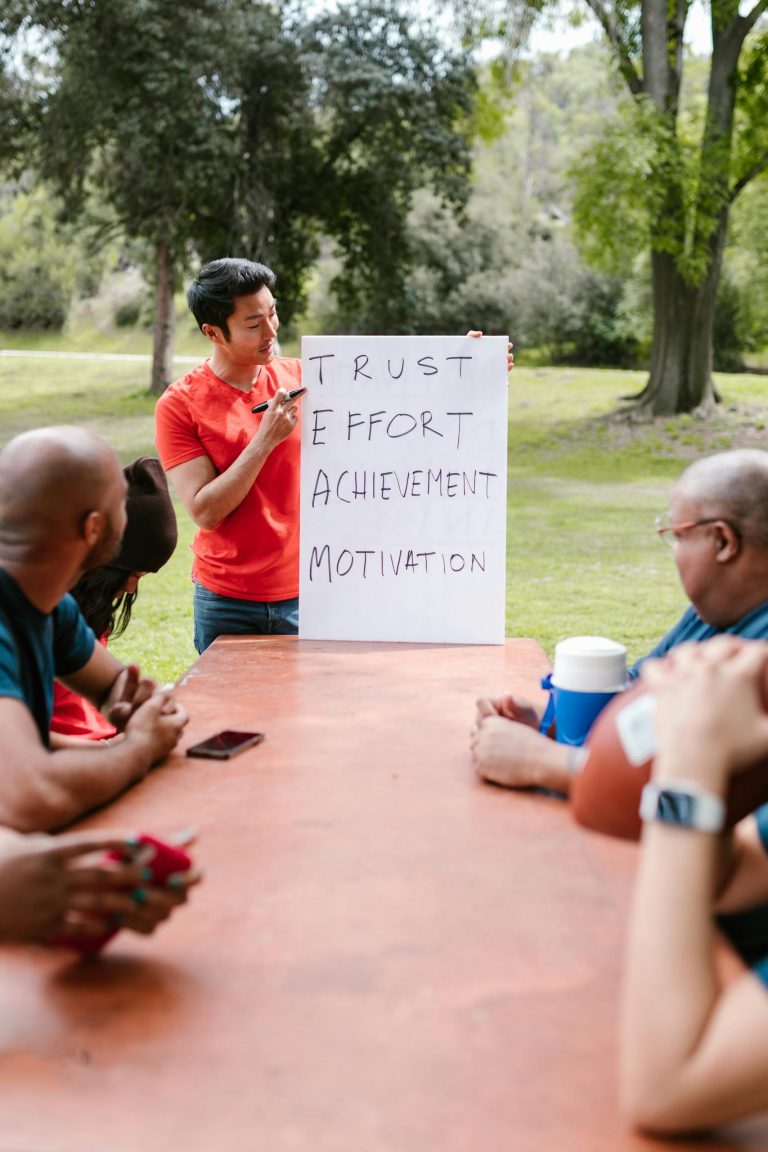The Role of Trust in Building High-Performing Teams
Have you ever been part of a team where members hesitate to share ideas openly, fear admitting mistakes, or hold back from collaboration due to mistrust? As a leader, you may wonder why some teams excel effortlessly, while others struggle despite abundant resources and skills. The answer frequently lies in one simple yet profound concept: trust. In today’s rapidly evolving professional landscape, emotional intelligence is no longer optional; it’s foundational. Leaders who cultivate trust tap into their teams’ full potential, fostering creativity, resilience, and sustained high performance. In this article, you’ll discover why trust matters, the common challenges leaders face when fostering trust, and actionable strategies you can implement immediately.

Why Trust is Essential for Leadership Success
Trust isn’t merely a feel-good concept—it’s the cornerstone of high-performing teams. Defined simply, trust in the context of leadership is the belief that others have your best interests at heart, that they will support you, and that they will act reliably, ethically, and competently. When team members trust their leader and each other, they’re willing to take calculated risks, speak candidly, and innovate freely.
Organizations thrive when trust is cultivated because it enables emotional safety—an environment where employees feel comfortable sharing their genuine thoughts and feelings without fear of punishment or ridicule. Such an environment facilitates greater collaboration, higher engagement, and increased employee retention, as team members feel genuinely valued and understood.
The Challenges Leaders Face When Building Trust
Despite understanding the importance of trust, many leaders face challenges in effectively nurturing it within their teams. One common challenge is overcoming the misconception that accountability and empathy are mutually exclusive. Leaders often mistakenly believe they must choose between being compassionate or results-driven. In reality, the most successful leaders master the delicate balance between empathy and maintaining accountability, proving that integrating these qualities is not only achievable but essential.
Another significant hurdle leaders face is recognizing gaps between their own perception and how team members perceive their actions. Without sufficient self-awareness, leaders risk unintentionally undermining trust. This gap can result from a failure to consistently demonstrate reliability, fairness, or genuine concern for their team’s well-being.
Practical Strategies for Cultivating Trust
To overcome these challenges and deepen trust within your team, consider these practical strategies:
Communicate Intentionally and Transparently
Effective leaders communicate openly and honestly, sharing both successes and setbacks with genuine transparency. Intentional communication involves active listening, respectful inquiry, and authentic follow-up. This approach ensures team members feel seen, heard, and respected, creating a culture of openness and mutual trust.
Model Accountability and Empathy Simultaneously
Rather than viewing empathy and accountability as conflicting, strive to integrate both qualities. Respond thoughtfully to team member challenges by validating their feelings and demonstrating empathy, while clearly articulating performance expectations. Leaders skilled at this balance maintain high standards without sacrificing genuine understanding and support.
Invest in Developing Self-awareness
Your self-awareness as a leader is foundational to trust-building. Regularly reflecting on how your actions and reactions affect your team is essential. Being aware of emotional triggers allows you to respond thoughtfully instead of impulsively. Leaders who can genuinely empathize and manage their emotional landscape effectively inspire greater trust and respect.
Set Healthy Boundaries
Interestingly, trust also involves setting clear boundaries. Leaders who define healthy professional limits prevent burnout and maintain emotional resilience. By setting boundaries, you demonstrate a balanced, sustainable form of empathy and direct team members to additional resources when needed, further strengthening trust through clarity and consistency.
Common Pitfalls and How to Avoid Them
One common pitfall is the temptation to overload empathy, inadvertently lowering standards. While empathy is vital, excessive leniency can lead to reduced team motivation and accountability. The key is thoughtful responsiveness—acknowledging struggles without unnecessarily compromising on performance expectations.
Another mistake is assuming trust is a one-time investment. Trust requires continuous nurturing through consistent behavior and ongoing reinforcement of positive interactions. Leaders must remain attentive and responsive to shifts in team dynamics, proactively addressing challenges to maintain a high-trust environment.
Key Insights & Practical Takeaways
- Prioritize intentional, authentic communication to foster openness and transparency.
- Integrate empathy and accountability to create a balanced approach.
- Regularly practice self-awareness and emotional intelligence to understand your impact.
- Set clear and healthy boundaries to sustain trust over time.
- Avoid excessive leniency; maintain supportive yet performance-oriented standards.
Closing Thoughts
Trust-building is neither a quick fix nor a simple checkbox—it is an intentional, ongoing commitment at the heart of exceptional leadership. When your team trusts you, they’re empowered to bring their full, authentic selves to work, innovate fearlessly, and perform at their highest levels. As a leader, embracing trust as a core value transforms your team’s potential into lasting, exceptional outcomes.
Begin today. Reflect honestly on your leadership approach, embrace continuous learning, and commit to cultivating trust every day. Your team—and your organization—will thrive.
About the Author
Emily Carter is a Leadership Research Analyst and contributing author at MajorLeader. With expertise in emotional intelligence and hybrid work dynamics, Emily translates the latest research into practical advice and training. Her passion lies in helping leaders build compassionate, emotionally intelligent teams that excel in today’s fast-paced world.




